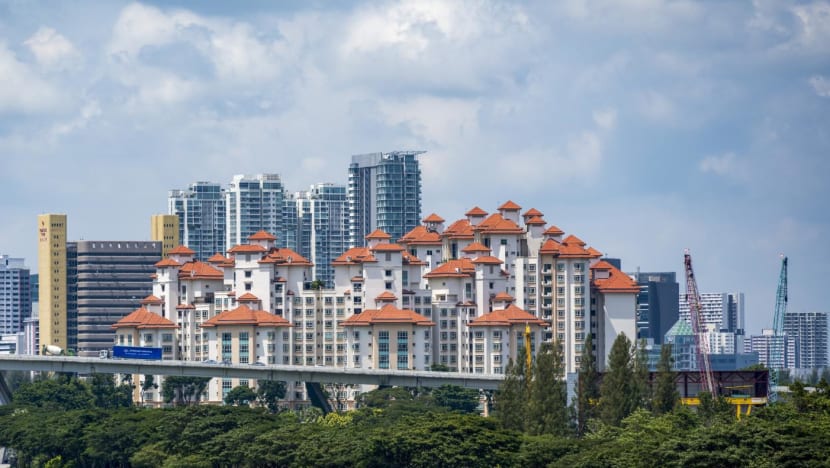Change in ABSD rules for housing developers welcome but developers may want more, experts say
The analysts said the attention on developers could be due to the government recognising that the property market may face some headwinds going forward.

A general view of residential buildings in Singapore. (Photo: iStock)

This audio is generated by an AI tool.
SINGAPORE: A revision in rules that will give housing developers more leeway in selling off units in their projects signifies that the government wants to listen to the industry, but developers may look to the government to do more in this space, analysts said on Monday (Feb 19).
Deputy Prime Minister and Minister of Finance Lawrence Wong had announced in his Budget speech last week that developers that sell at least 90 per cent of each development within five years from the land acquisition date, will have a lower additional buyer's stamp duty (ABSD) clawback rate.
This is down from the previous qualifying mark of 100 per cent and only applies if the commencement and completion of housing development timelines are also satisfied.
The update ensures that housing supply continues to be released promptly, while providing some flexibility to the developers, said Mr Wong.
In a joint press release following the Budget statement, the Ministry of Finance and Ministry of National Development said that the reduction in the ABSD remission clawback rate will depend on the proportion of units sold by the developers within the remission sale timeline, and will apply to projects on residential land acquired on or after Jul 6, 2018.
Analysts said the move may remove some pressure that developers currently face, adding that the sector may be looking forward to more help in future.
“It may provide a bit of relief but I think developers would still wish to have either lower taxes or a longer runway,” chief research officer at property tech firm Mogul.sg Nicholas Mak told CNA’s Singapore Tonight.
“Right now, it’s a one-size-fits-all. It's a five-year deadline regardless of the size of the development project. Whether it is a 200 units or 1,000 units project, they must still sell out within five years.”
Real estate firm OrangeTee & Tie CEO Justin Quek, who was also on the show, echoed the sentiment.
He noted that since it is a broad stroke, the rule does not discern between large and small projects.
ABSD rules for property developers
Developers are granted an ABSD remission provided that they sell all the units in their development within a prescribed sale timeline. However, developers sometimes face difficulties in meeting the timeline requirement, and are then subject to a full clawback of the ABSD.
Currently, developers purchasing residential land on or after Dec 16, 2021 are subject to 40 per cent ABSD, comprising a 35 per cent upfront remittable component. Developers who purchased residential land between Jul 6, 2018 and Dec, 15 2021 are subject to 30 per cent ABSD, comprising a 25 per cent upfront remittable component.
Both these remittable components are clawed back fully with interest if the housing development does not commence within two years from the date of the acquisition of the site, and the housing development is not completed and all units sold within five years from the site acquisition date.
DESIRE TO LISTEN TO INDUSTRY
However, he said that the changes show the government’s desire to listen to developers.
He noted that most of the policies over the past few years have always been targeted at tightening supply and imposing more on the developers while “rightfully” being biased towards the market.
“This really is quite a nice gesture to let the developers know that they're listening,” said Mr Quek.
“It is a significant signal this time round that the government's putting in some effort to look at things from the supply side of the situation.”
Both analysts said the change in tack could be due to the government recognising that the property market may face some headwinds going forward.
Mr Quek noted that the development industry in Singapore is large and that it employs several people.
“It contributes a lot to our employment sector, our GDP (gross domestic product) … So by giving them this bit of flexibility, I think the government definitely has interest in wanting to keep this a sustainable business for them,” he said.
DISCOUNTS LIKELY TO CONTINUE
Mr Mak said that discounts on units that remain unsold nearing the deadline will most likely continue based on the past, where developers managed to sell 99 per cent of the units in their projects before the end of the five-year deadline.
“The penalty for not selling all the projects is just too punitive,” he said.
“So they will cut prices, they'll give incentives, they'll even give more commissions to agents just to move those last few units.”
Mr Mak added that a developer’s project profit could be wiped out even with a lower clawback rate.
















